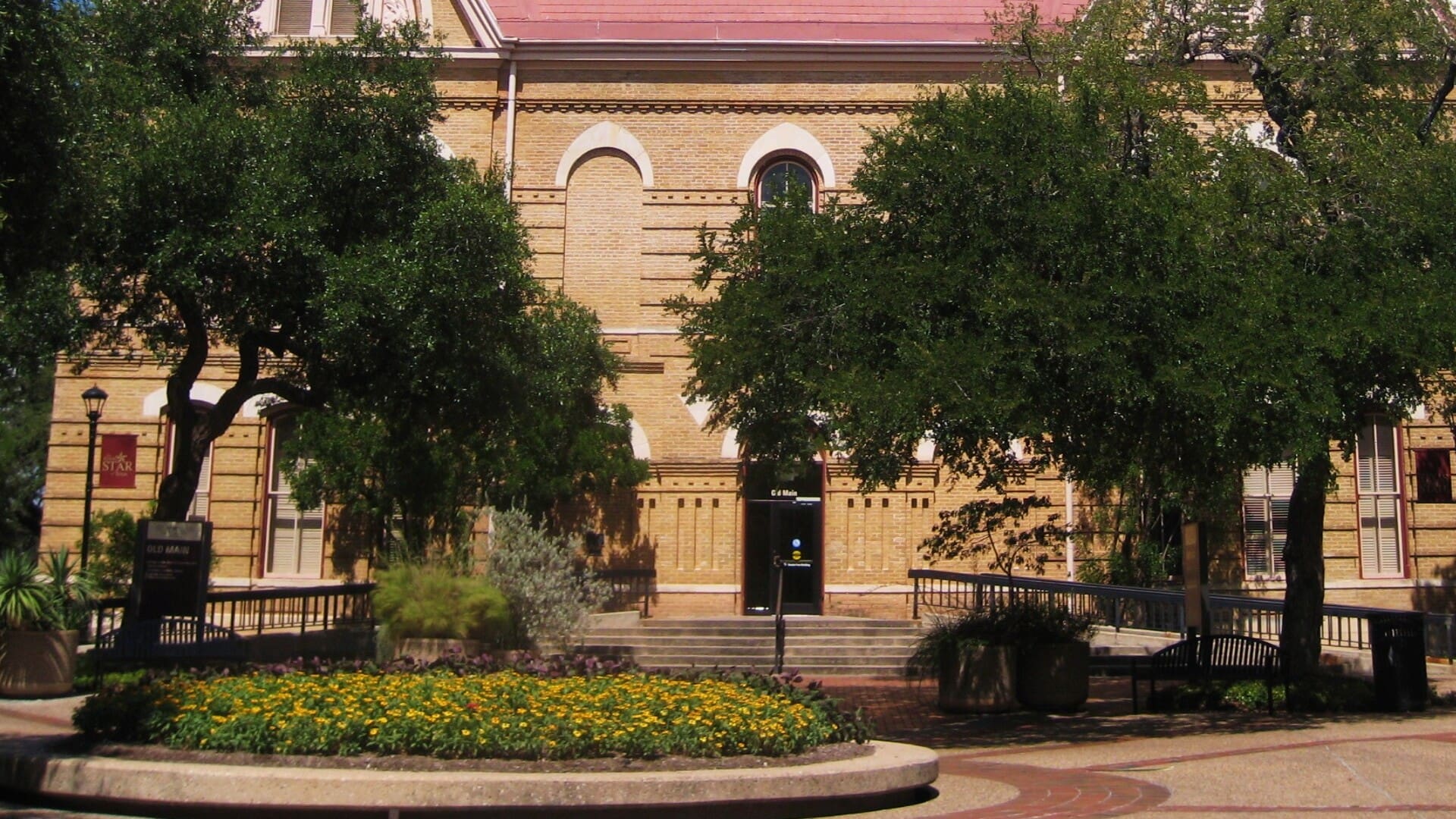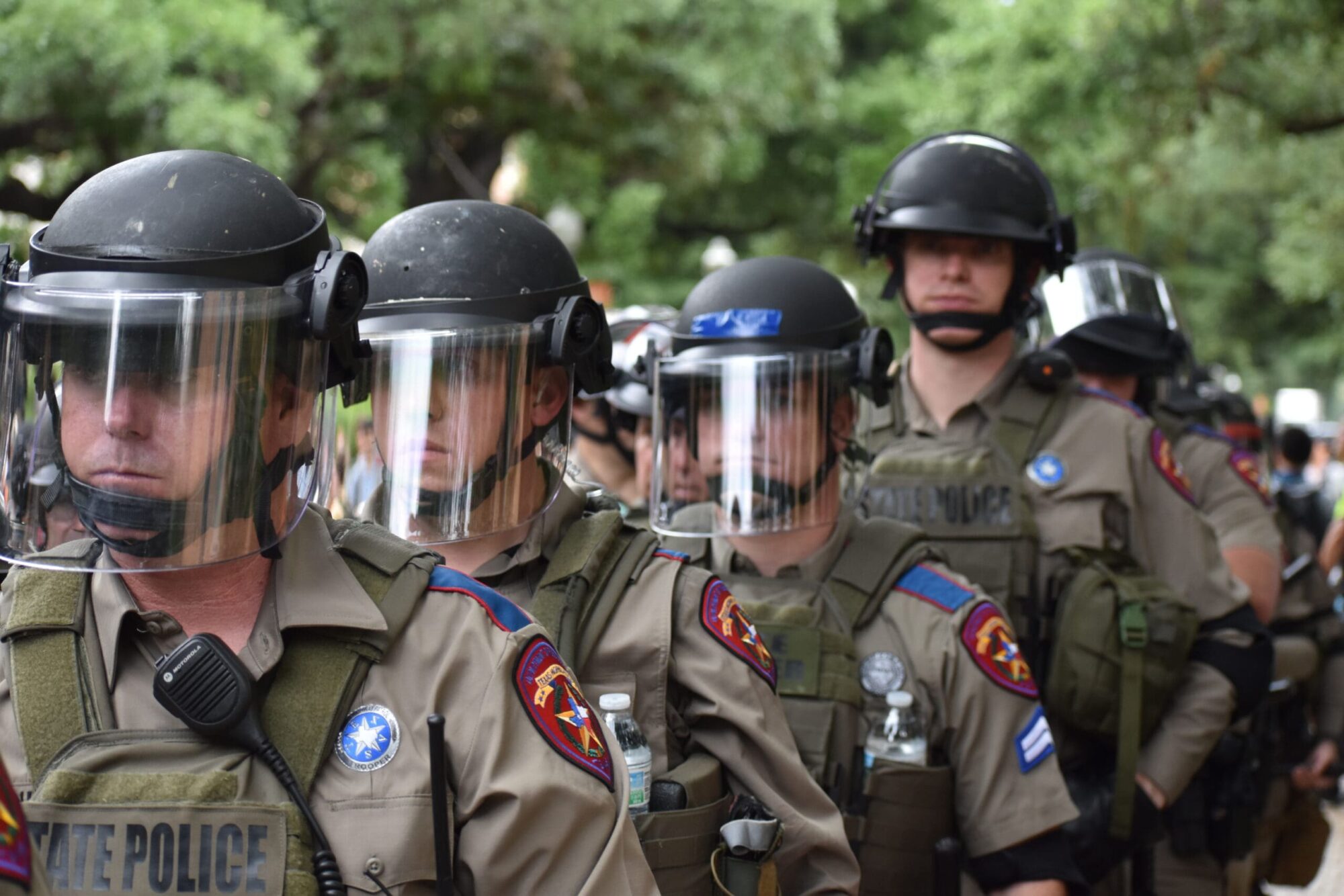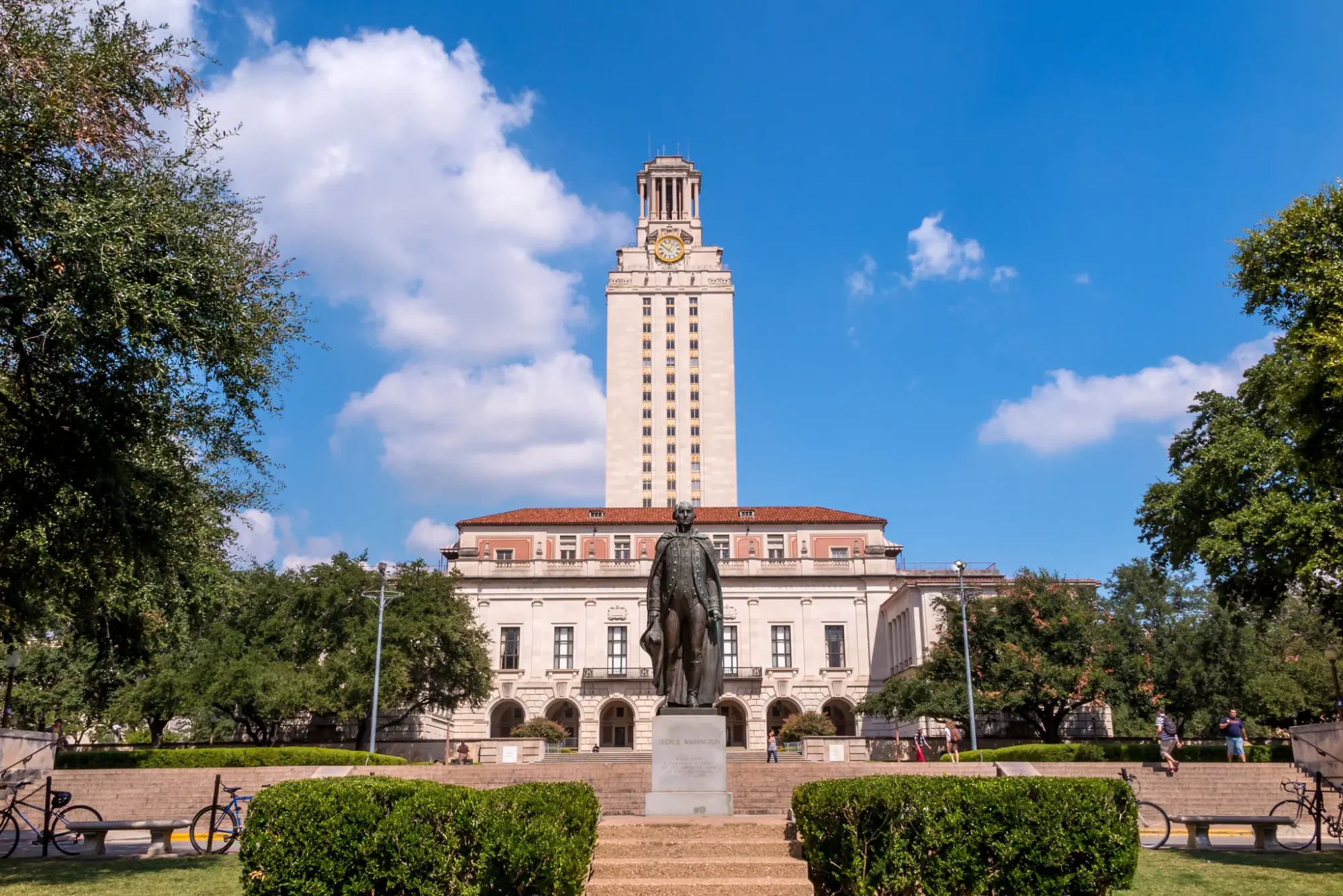A campus free speech group is moving forward with its lawsuit against Texas State University over the school’s discrimination-harassment policy, which it says chills students’ First Amendment rights.
Speech First initially took issue with both the discrimination-harassment policy, stemming from a 2020 revision of Texas State’s Policy and Procedure Statements, and a separate email and computer policy from a 2022 revision.
Texas State’s first change under Prohibition of Discrimination placed harassment under the umbrella of discrimination, defining it as “unwelcome verbal, written, graphic, or physical conduct that: is directed at an individual or group of individuals because of their race, color, national origin, age, sex, religion, disability, veterans’ status, sexual orientation, gender identity, or gender expression.”
Then in 2022, the school updated its Appropriate Use of Information Resources policy to prohibit the use of students’ email addresses or school-issued computers to “affect the result of a local, state, or national election or to achieve any other political purpose.”
Speech First argued that the two changes were too vague and have been used, alongside the university’s anonymous tip-off system, to create an environment where students are afraid to speak up over concerns they might offend someone.
Students’ First and Fourteenth Amendment rights thus came under question, the group held.
Texas Scorecard previously reported on Speech First’s lawsuit when it began in April of last year, after the group filed a complaint and a motion for a preliminary injunction on the policies.
In September, the U.S. District Court in Western Texas largely rejected Speech First’s motion for a preliminary injunction on Texas State’s discrimination-harassment policy, but only after the court warned the policy would be temporarily enjoined if it was not changed.
The university obliged, and the district court found Texas State “significantly altered” the discrimination-harassment policy by clarifying that “Constitutionally protected expression cannot be considered Discrimination and Harassment under this Policy.”
Texas State also significantly changed its definition of harassment and “protected classes” to be more in line with the official federal definition and assured that “an individual’s subjective belief … is not sufficient to establish Discrimination or Harassment.”
Separately, the court preliminarily enjoined Texas State over its student email and computer policy. Texas State later revised the language to “clarify the scope of the statutory limitation” consistent with the relevant Texas Government Code on the topic.
But Speech First remains unsatisfied with the district court’s ruling on Texas State’s discrimination-harassment policy.
The group filed an appellant brief to the U.S. Fifth Circuit Court of Appeals on January 16.
Speech First’s brief contended that Texas State’s new discrimination-harassment policy continues to go “beyond the Supreme Court’s authoritative definition of harassment” and conflicts with superseding system-wide policies
However, Speech First Executive Director Cherise Trump told The American Conservative on January 22 that her group is primarily focused on getting a ruling from the appellate court on the original policy.
“Aside from the fact that the new policy still chills student speech and, therefore, violates their First Amendment rights, the university changing its policy after vigorously defending it is an obvious attempt to evade a judicial ruling on the matter and now puts students in a precarious position, since the university could bring back the original policy at any time,” said Trump.
“We are hopeful the Fifth Circuit will rule on the original policy and hold Texas State University accountable,” she added.
Since Speech First filed its appeal, other pro-free speech groups like the Foundation for Moral Law, the Alliance for Defending Freedom (ADF), and the Manhattan Institute have filed amicus briefs supporting the lawsuit.
“Texas State University has joined the far too numerous ranks of higher education institutions that use speech codes to chill and suppress constitutionally protected ideas,” stated ADF Senior Counsel Travis Barham.
Texas Scorecard contacted Texas State University for comment but did not receive a response before publication.




